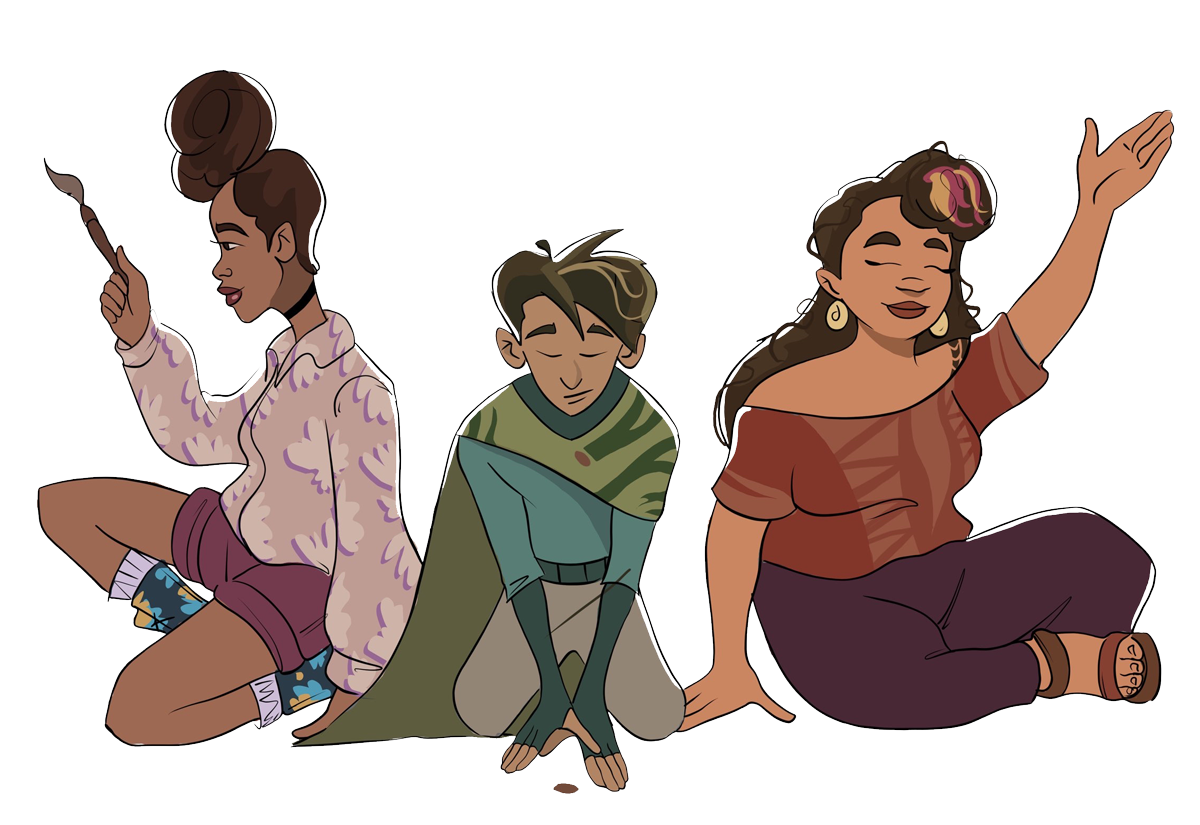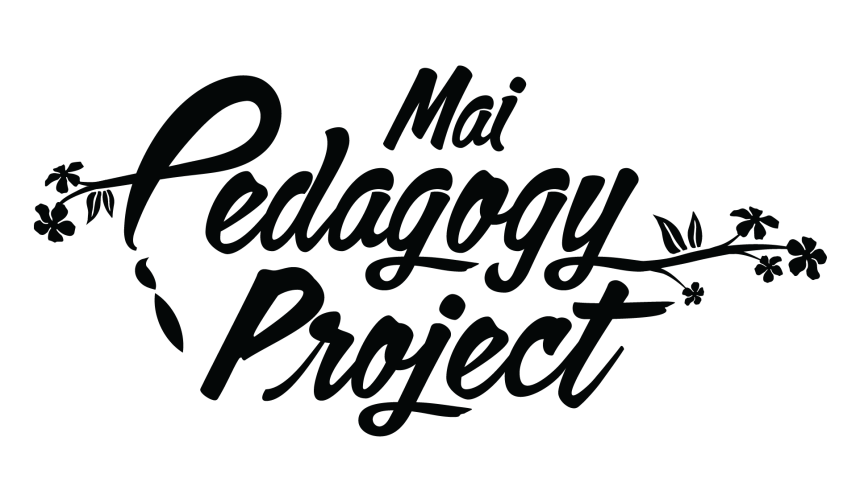
We welcome collaboration, and love hearing from friends of Mai Pedagogy Project who have engaged with Research Artivism!
Materials from Mai Pedagogy Project have been used in a wide array of educational contexts!
Friends of Mai Pedagogy Project have used our research artivism in a variety of ways, such as:
Testimonials

IMPACT ON LEARNING
LEADING COLLECTIVE ACTION: “What I love about this resource as a facilitating dialogue tool is I see these two extremes that show up when you’re trying to organize dialogue around equity and justice: (1) we’re looking at data and the conversation ends up being this stunted formal “let’s interpret the numbers” and people’s lived stories and experiences end up getting left out and sanitized because it becomes this conversation about numbers and percentages, and (2) you come in and ask people to tell their stories as a way to bring in lived experiences, and it ends up being this traumatic thing where the learning has to happen as a result of someone having to spill and explain themselves. And this [pedagogical resource] offers something in between, it is a telling of a story based on curated choices using data, theories, and lived experiences… and it can be a tool where I can show it to people who are able to speak on lived experiences without requiring them to share their own trauma. It facilitated bringing up stuff without it having to be excavated and extractive in the dialogue” -Community Organizer
RACIAL MICROPOLITICAL LITERACY: “I have been worried that students are losing their creativity, their energy, their excitement, because schooling kills it. I wanna keep pushing them to freedom, dream a world which is envisioned, a world in community without oppression, racism, sexism, homophobia, xenophobia, classes, and etc. Not just what we’re fighting to resist, but what we’re fighting for. I was able to use this resource to have students use graphic novels as a way to present stories about their own communities, and that whole thinking creative process is what really stuck with me… If someone’s like, you need to make your class more rigorous, I don’t know what else could be more rigorous than using more resources that’s based on a scholarly journal, a theoretical framework, and to create something from it that’s accessible and meaningful to students” -K-12 English Language Arts Teacher
RACIAL MICROPOLITICAL LITERACY: For a lot of teachers who have grand visions of what it means to do justice work in the classroom, which may be tied to the savior complex, they might expect to see their students engage in these grand gestures of politics, going to protests, walkouts without realizing the tensions between the risks and resistance, all of these multiple images and dynamics of what it means to be political. Whose safety is on the line? I think there’s something that comics as a pedagogical resource offers… the slowing down, the questioning and the pauses, the eye contact, the facial expressions, the emotional reactions! This slows down a moment in a way that feels more real and tangible than what a traditional academic article can do… This gets to the interiority of this work in a powerful way, and parts of politics, resistance, and agency that teachers don’t always see or are in our purview. I’m definitely going to use this in my other classes.” – Teacher Educator
ETHNIC STUDIES PEDAGOGY: My job feels so unreal at times and I feel like even like-minded colleagues don’t understand me… Seeing counterstories that I can relate to is affirming, empowering, and validating of my experiences” -K-12 Teacher
PEDAGOGIES OF ORGANIZING: On a political level, decentering traditional forms of knowledge presentations is an important move for Ethnic Studies teachers. Providing multiple ways for K-12 students to represent their learning and understandings are important; [teachers] can’t just talk about providing multiple types of assessments, entry points and representations one’s learning without implementing it themselves…My [teacher candidates] are already used to having different options for engaging with and responding to a variety of sources for learning in my courses, and not just academic peer-reviewed journal articles… In the first iterations of my courses, I got mostly written responses. As I include more different types of sources over time, the type of responses I got are also different. I’ve gotten more visual responses, a lot more recordings doing their own podcast response to readings. When reading the Pedagogies of Organizing comic, a teacher composed a song that represents [their understanding of the tensions of organizing and social movements]” -Teacher Educator
CRITICAL RACE TALK: I think there is something powerful about the visual component of scholarly findings that seems less intimidating. We associate comics and cartoons with something lighter and you can dive into more difficult topics that can serve to ignite conversations with people. To read the comic and read the article together is an entry point to understanding complex ideas for all populations, all grade levels, and breaks the tradition of academia always needing to produce an article to explain complex things. The articles [Josephine] wrote and the ways that they were transformed into the comics really could serve people trying to look at ways to talk about power oppression, antiracism in ways that don’t default to academia or maybe getting defensive, and just talking about your feelings absent of theory. It allows us to collaborate together, and think about these ideas in ways that tell a story, and actually tell someone’s story in its full truth – Doctoral Student

RE-IMAGINING KNOWLEDGE CREATION
FEATURED RESEARCH ARTIVISM: “I’m in a resocialization process right now in moving out of academia and into being a ‘business owner.” And what I’m having to remember is creativity. How do you innovate? How do you foresee what the market needs and build for it? I took Mai Pedagogy Project up as an invitation, as an opportunity to learn creativity, which is not what I was trained to do at any point of my education… I have all the critiques of capitalism, and one thing you learn with that mindset is how do you create something that doesn’t exist, that’s going to be useful and resonate with people?” -Educational Consultant

RECLAIMING INTELLECTUAL & POLITICAL WORK OF TEACHING
FEATURED RESEARCH ARTIVISM: The invitation to use multimodal resources as a teaching tool, and to create my own, catalyzed ideas I’ve had for a long time and made me feel like this work is possible to do now. So often when we think about teaching, the pedagogical is a little bit ignored. Part of pedagogy is people’s inspiration, how they connect with the lesson or what they’re teaching, how they bring themselves into the lesson, and how they bring in their intentions and what they’re thinking about.. that’s ALL part of your pedagogy. Part of what really got me motivated to create my own resource with teachers was seeing how scholars talk about justice-oriented teaching at scholarly conferences in reductive ways, like “What teachers need is example lesson plans!” But it’s gotta be so much MORE than just the lesson and just the material. The pedagogical approach is not something that is easily communicated or transferred to other teachers. I think every teacher has to explore their own approach and has to make it their own, so what I love about creating with teachers is how much you can see each teacher’s approach and who they are and their individual stories and connected to their family stories, which are part of their pedagogical approach. It’s just so much more than a lesson plan and their material: it’s their rationale, their reflections, their metacognition. That’s going to be helpful for new teachers who are still trying to figure that out. The expectation is not for them to reproduce their lessons but to realize that there are a variety of ways to think about teaching, and learn how to teach from their own perspectives approaches -Teacher Educator


